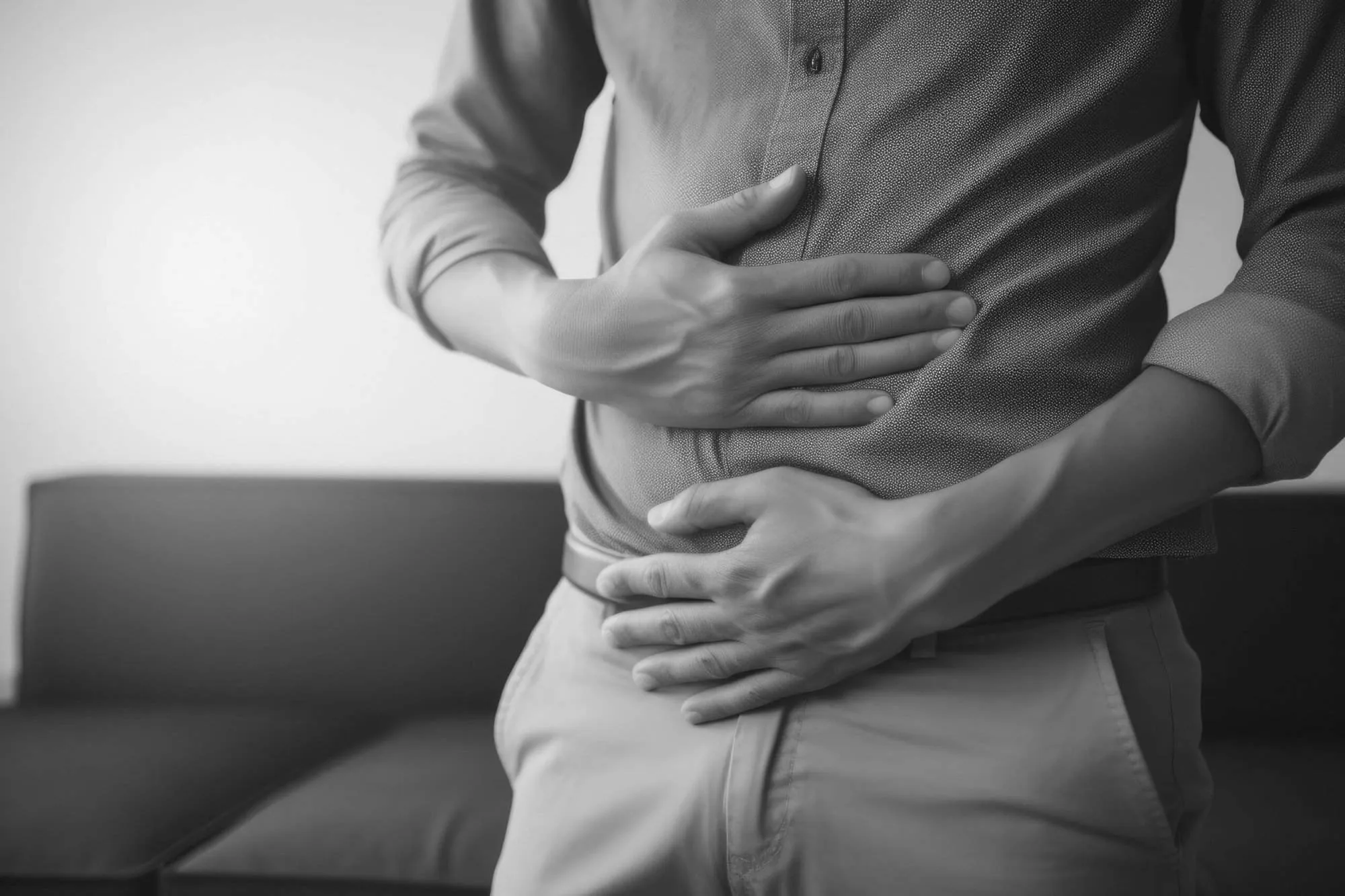NATION – Stomach gurgling with diarrhea may indicate an underlying condition, such as an infection, a food intolerance or sensitivity, or an underlying bowel issue. Stomach gurgling typically occurs due to the movement of fluids and gases through the gastrointestinal (GI) tract. It is a normal by-product of digestion. However, loud or excessive gurgling sounds may indicate an underlying issue.
Diarrhea refers to loose, watery stools. It is typically a sign that the digestive system is not functioning as normal. Stomach gurgling combined with diarrhea may signal an underlying infection or gastrointestinal (GI) issue, such as:
Gastroenteritis: This condition involves inflammation of the stomach and intestines due to an infectious organism, such as a bacteria, virus, or parasite.
Food poisoning: Consuming contaminated food or water can lead to food poisoning. Common causes of food poisoning include the bacterial strains Escherichia Coli (E. Coli) and Salmonella. Symptoms may include stomach gurgling, diarrhea, and abdominal pain.
Irritable bowel syndrome (IBS): This is a chronic disorder affecting the large intestine. Symptoms include bloating, diarrhea/constipation, abdominal pain, and increased sensitivity to gas or stool movement.
Inflammatory bowel disease (IBD): The term IBD refers to two conditions; Crohn’s disease (CD) and ulcerative colitis (UC). Both conditions cause chronic inflammation of the GI tract, which can cause symptoms such as persistent diarrhea, rectal bleeding, blood in stools, abdominal pain, gurgling, weight loss, and fatigue.
Stomach gurgling and diarrhea can be symptoms of specific food intolerances or sensitivities, such as lactose intolerance, gluten sensitivity, or celiac disease.
Certain medications, such as antibiotics, can disrupt the balance of bacteria in the digestive system, leading to stomach gurgling and diarrhea.
During periods of stress or anxiety, the body releases hormones and chemicals into the digestive tract, where they can affect the normal functioning of the digestive system. This can cause symptoms such as IBS symptoms, indigestion, nausea, and abdominal cramps.
When to Contact a Doctor:
People should contact their doctor if symptoms of stomach gurgling and diarrhea are associated with any of the following:
Persistent or severe symptoms: Seek medical attention if symptoms are severe or persist for more than 4 days, especially if accompanied by other concerning symptoms such as severe abdominal pain, blood in the stool, high fever, or dehydration.
Dehydration: Diarrhea can lead to dehydration, which can be particularly dangerous for children, older adults, and individuals with preexisting health conditions. Seek prompt medical care if experiencing excessive thirst, dry mouth, decreased urine output, lightheadedness, or weakness.
Travel history or exposure to contaminated food or water: Consult a doctor if there is a recent history of travel to a region with a high risk of GI infections or if there is a suspicion of food poisoning or consumption of contaminated water. Medical treatment may be necessary.
Treatments and Remedies:
The treatments and remedies for stomach gurgling and diarrhea depend on the underlying cause. Some potential treatment options include:
- Replacing fluids and electrolytes: Drink plenty of fluids, such as water, clear broths, and electrolyte-rich solutions, to stay hydrated and replace lost electrolytes.
- Following the BRAT diet: Eat bananas, rice, applesauce, and toast, or other bland foods, to soothe the digestive system and provide easily digestible foods during episodes of diarrhea.
- Avoiding trigger foods: Identify foods that may worsen symptoms and try temporarily eliminating those foods from the diet. Common trigger foods that can irritate the digestive system include caffeine, alcohol, and spicy foods.
- Taking probiotics: Probiotics are beneficial bacteria that can help restore the natural balance of bacteria in the gut. They are available as supplements or in certain fermented foods. Probiotics might help improve digestion and reduce diarrhea, but people should consult a healthcare professional for guidance on the appropriate strains and dosages.
- Taking antidiarrheal medications: Over-the-counter (OTC) medications such as loperamide (Imodium) can help reduce diarrhea symptoms by slowing down bowel movements. However, consult a healthcare professional before taking these medications, as they are not suitable for use with certain bacterial or parasitic infections.
- Taking Prescription medications: In cases where diarrhea is due to an infection or an underlying condition, a healthcare professional may prescribe specific medications to target the underlying cause.
- Applying heat: Placing a hot water bottle or heating pad on the abdomen can help alleviate abdominal discomfort and cramping.
- Resting: Get plenty of rest to allow the body to recover from an episode of diarrhea.
Frequently Asked Questions:
Why is my stomach gurgling and I can’t have a bowel movement?
There are many reasons a person might experience stomach gurgling combined with an inability to have a bowel movement. The following conditions can cause changes in bowel habits, including stomach gurgling and constipation:
- Irritable bowel syndrome (IBS): A chronic GI disorder that may also cause cramping, bloating, and gas.
- Inflammatory bowel disease (IBD): While diarrhea is a common symptom of UC and CD, some individuals also experience constipation.
- Intestinal blockage: A blockage in the intestines can prevent the normal passage of stool, leading to constipation. Some factors that can cause blockages include impacted feces, hernias, scar tissue, and tumors.
Intestinal pseudo-obstruction (IPO): In IPO, a person experiences symptoms of an intestinal blockage in the absence of any obstruction. Instead, the bowel becomes dilated due to nerve or muscle damage that stops or delays the movement of food, fluids, and air through the intestines.
Stress and anxiety: Acute or chronic stress and anxiety can disrupt the normal functioning of the digestive system, contributing to constipation.
Does bowel cancer cause stomach noises?
Medical professionals generally consider stomach gurgling and other digestive sounds a typical part of the digestive process. These sounds occur due to the movement of gas and fluids within the GI tract and are not specific to bowel cancer. However, bowel cancer can cause changes in bowel habits. In some cases, it may lead to bowel obstruction, which can result in increased abdominal sounds.
Stomach gurgling and diarrhea are symptoms that often occur together. The cause may be a transient issue, such as an infection, food intolerance or sensitivity, or a period of stress or anxiety. Less commonly, these symptoms may indicate a more chronic gastrointestinal (GI) issue, such as ulcerative colitis or Crohn’s disease.
The treatment for stomach gurgling and diarrhea depends on the underlying cause. Treatment may involve simple measures, such as eating a bland diet, avoiding trigger foods, or getting plenty of rest. In other cases, OTC or prescription medications may be necessary to treat an underlying health issue.
A person should contact their doctor if their symptoms become severe or persistent, or if they develop dehydration. People should also contact a doctor if they suspect they may have an underlying infection or more chronic health issue that requires medical treatment.
– Hanna Ames









